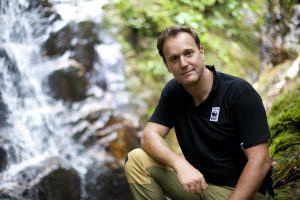person
Dermot O’Gorman

Dermot is a global sustainable development leader with 25 years’ experience in envisioning, ideating, and implementing solutions to protect our wildlife and environment for current and future generations. He has worked with WWF for more than two decades, serving as the CEO of WWF-Australia, WWF-Pacific, and WWF-China. He also holds several board positions, including at the Australian Council for International Development (ACFID) and the Luc Hoffmann Institute, as well as being the Chair of OpenSC.
Over the past five years, Dermot has been focused on the future, thinking about how WWF and other NGOs globally can use innovation to meet the challenges of a changing world. As a Fulbright Visiting Scholar at Stanford University’s Digital Civil Society Lab in 2022, he’s working alongside the brightest minds around the world to explore the intersection of digital technology, civil society, and big philanthropy; how it’s fundamentally changing the charity sector; and how people, governments, and NGOs can work collaborate on new ways forward to achieve a sustainable future.
This builds on his experience at WWF, bringing together human development, environmentalism, social justice, philanthropy, private equity, and innovation. Since joining WWF-Australia, Dermot has transformed the organisation into a leader in codesigning new ways to make a meaningful, lasting difference in the world. Following the devastating bushfires of 2019, he oversaw the largest, most innovative wildlife and landscape regeneration program in the nation’s history, WWF’s $300m Regenerate Australia program. Dermot also led the establishment of WWF-Australia’s award-winning global innovation program, WWF Panda Labs.
His approach to building bridges and mobilising people around a common cause has seen WWF-Australia partner with Indigenous communities, governments, multilateral aid agencies, businesses, and the broader conservation and climate movement.
In the past, Dermot’s work at WWF-China led to a successful partnership with the Chinese government on programs that have bent the curve on giant pandas and brought tigers back to China. Together, they also developed a climate resilience plan to protect the ecosystem of the world’s third longest waterway, China’s Yangtze River.
Meanwhile, by partnering with local communities, WWF-Pacific helped deliver marine-protected areas within ecoregion spatial priorities; scale gender-led coastal fisheries management networks; and innovate on fisheries solutions, including creating a blockchain-based solution to monitor the sustainability of tuna fishing in the Pacific.
As the global pathway to a sustainable future is still an uncertain trajectory, Dermot and WWF’s global network executive team will continue to collaborate closely with the best minds to help people, governments, and NGOs see global challenges as opportunities to co-create a better future for humanity and nature.
Dermot has degrees in environmental science and conservation from the University of London and Southern Cross University, an M.Sc. in global environmental policy from the London School of Economics and an MBA, with honors, from IMD Business School, Lausanne Switzerland.
